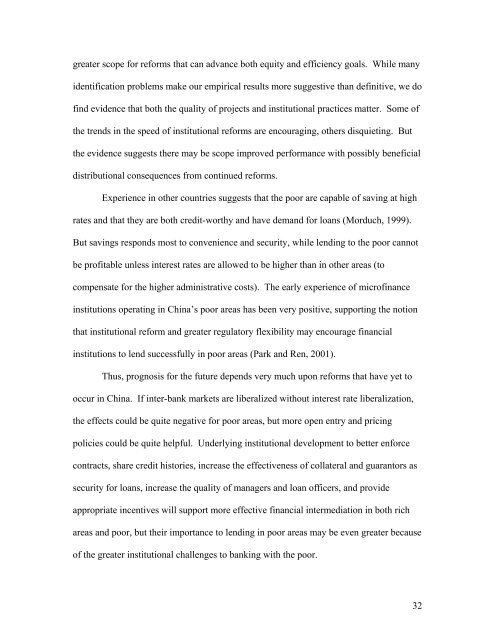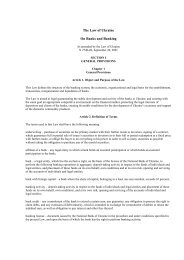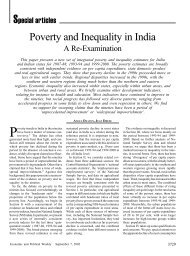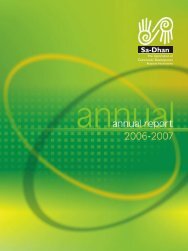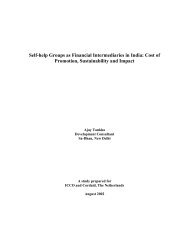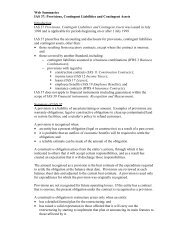Are China's Financial Reforms Leaving the Poor Behind - Harvard ...
Are China's Financial Reforms Leaving the Poor Behind - Harvard ...
Are China's Financial Reforms Leaving the Poor Behind - Harvard ...
You also want an ePaper? Increase the reach of your titles
YUMPU automatically turns print PDFs into web optimized ePapers that Google loves.
greater scope for reforms that can advance both equity and efficiency goals. While manyidentification problems make our empirical results more suggestive than definitive, we dofind evidence that both <strong>the</strong> quality of projects and institutional practices matter. Some of<strong>the</strong> trends in <strong>the</strong> speed of institutional reforms are encouraging, o<strong>the</strong>rs disquieting. But<strong>the</strong> evidence suggests <strong>the</strong>re may be scope improved performance with possibly beneficialdistributional consequences from continued reforms.Experience in o<strong>the</strong>r countries suggests that <strong>the</strong> poor are capable of saving at highrates and that <strong>the</strong>y are both credit-worthy and have demand for loans (Morduch, 1999).But savings responds most to convenience and security, while lending to <strong>the</strong> poor cannotbe profitable unless interest rates are allowed to be higher than in o<strong>the</strong>r areas (tocompensate for <strong>the</strong> higher administrative costs). The early experience of microfinanceinstitutions operating in China’s poor areas has been very positive, supporting <strong>the</strong> notionthat institutional reform and greater regulatory flexibility may encourage financialinstitutions to lend successfully in poor areas (Park and Ren, 2001).Thus, prognosis for <strong>the</strong> future depends very much upon reforms that have yet tooccur in China. If inter-bank markets are liberalized without interest rate liberalization,<strong>the</strong> effects could be quite negative for poor areas, but more open entry and pricingpolicies could be quite helpful. Underlying institutional development to better enforcecontracts, share credit histories, increase <strong>the</strong> effectiveness of collateral and guarantors assecurity for loans, increase <strong>the</strong> quality of managers and loan officers, and provideappropriate incentives will support more effective financial intermediation in both richareas and poor, but <strong>the</strong>ir importance to lending in poor areas may be even greater becauseof <strong>the</strong> greater institutional challenges to banking with <strong>the</strong> poor.32


